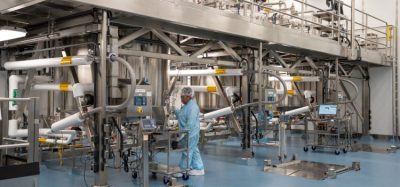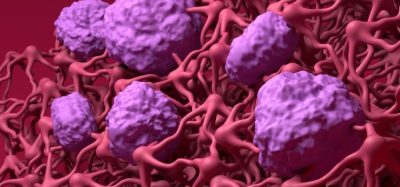$260 million funding injection for Danish vaccines initiative
Posted: 18 December 2023 | Caroline Peachey (European Pharmaceutical Review) | No comments yet
The Novo Nordisk Foundation is investing up to $260 million in a vaccines research and development initiative focused on respiratory diseases.


The Novo Nordisk Foundation has committed up to DKK 1.8 billion ($260 million) to establish a state-of-the-art research and vaccine development initiative in Denmark.
Developed in partnership with the University of Copenhagen and Denmark’s Statens Serum Institut, the Foundation says this the first vaccines initiative globally to focus solely on understanding how to generate immunity in the airway itself.
Research at the Novo Nordisk Foundation Initiative for Vaccines and Immunity, or NIVI, will focus initially on creating new or improved vaccines for tuberculosis, influenza, and Group A Streptococcus (GAS). Collectively, these diseases cause more than 2.5 million deaths per year, according to the Novo Nordisk Foundation.
There is currently no licensed GAS vaccine. The only available TB vaccine does not prevent lung disease in adolescents and adults, while influenza vaccines have limited efficacy and only offer short-term protection.
“Here in Denmark, NIVI will consolidate current expertise in immunology and vaccine development, helping to establish an internationally renowned vaccine research system and ensuring that Denmark is at the forefront of translational vaccine science globally,” declared Professor Mads Krogsgaard Thomsen, CEO of the Novo Nordisk Foundation.
Sophie Løhde, Denmark’s Minister of the Interior and Health, added: “There is a need for innovative solutions and public-private partnerships that can help improve vaccine research and thus public health globally.”
Developing vaccines at NIVI
NIVI aims to develop new vaccines for TB, influenza and GAS that generate “robust, local immunity in the airways and, by extension, limit the spread of antimicrobial resistance.”
Various vaccine delivery strategies will be tested and combined, including conventional injection in the muscle and nasal sprays”
Researchers at NIVI will compare different vaccine antigens, platforms, and delivery methods side by side, increasing the chances of success. Additionally, various vaccine delivery strategies will be tested and combined, including conventional injection in the muscle and nasal sprays.
By studying three very different viral and bacterial diseases and developing a range of vaccine candidates and technologies, NIVI will significantly advance understanding of both systemic and airway immunity, helping the world to tackle existing and future airborne threats.
Novo Nordisk Foundation invests in Cellerator, a large-scale cell therapy production site in Denmark
NIVI structure
NIVI will be made up of two entities, which together will ensure a smooth path between basic R&D up to Phase II clinical trials.
The research arm – the Novo Nordisk Foundation Center for Vaccines and Immunity (NCVI) – is funded via an eight-year grant and will be anchored in the University of Copenhagen’s Department of Immunology and Microbiology.
Both NCVI and NVAC will be headed by a new NIVI Executive Director/CEO, to be announced in 2024″
Another company – the Novo Nordisk Foundation Vaccine Accelerator (NVAC P/S) – has been set up to enhance the work of NCVI. NVAC will be responsible for licensing and developing vaccine technologies, preparing vaccine formulations, reagents and assays, and coordinating the external clinical-grade production and clinical testing of promising vaccine candidates. Any revenue generated by NVAC will be reinvested in NIVI.
Both NCVI and NVAC will be headed by a new NIVI Executive Director/CEO, to be announced in 2024.
Until now, development of NIVI has been led by eminent vaccinologist and Senior Vice President of Infectious Diseases at the Novo Nordisk Foundation, Professor Peter Lawætz Andersen.
“Fundamentally, designing vaccines with a focus on generating immunity in the respiratory system is a relatively unexplored area of research with astounding potential,” he says. “We hope that NIVI’s work can help prepare us for the next pandemic or even help consign airborne epidemics to history.”
Related topics
Clinical Development, Drug Delivery Systems, Drug Development, mRNA, Research & Development (R&D), Vaccine Technology, Vaccines
Related organisations
Novo Nordisk Foundation, Statens Serum Institut, University of Copenhagen









